August 28th, 2019
Status: Post-Residency Syndrome
Ashley McMullen, MD
Today, I’m thinking about the end of residency. But first, let me tell you about the beginning of residency. My first day of clinic, my very first week of residency, I had a grand total of one patient scheduled. A seasoned outgoing resident had given me sign-out on this person, along with some big, knowledgeable shoes to fill. I did my most thorough pre-rounding the evening before. I prepped my note and reviewed the problem list I intended to cover during our visit. Our encounter began with some pleasantries, followed by my well-rehearsed, “What brings you in today?” To which my patient replied, “I really just need these forms filled out by a doctor.”
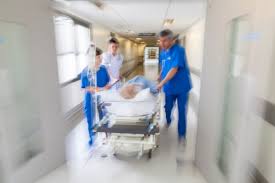 “Easy enough, I got this!” I thought to myself. Then I noticed the systolic blood pressure that was charted in the 60s. Suddenly I was staring more closely at the ashen skin, sunken eyes, and listless movements in front of me. However, when asked about this, my patient smiled and shrugged me off like I was hallucinating, then gently pushed the forms towards me. We agreed to start with a brief exam: pale conjunctiva, fast, regular heart beat, exquisitely tender abdomen, with overlying skin that was inflamed and indurated. I proceeded to check my own pulse which was racing, and then left to find an attending. Less than 1 hour later, my patient was admitted to the ICU with septic shock from a large abdominal wall abscess.
“Easy enough, I got this!” I thought to myself. Then I noticed the systolic blood pressure that was charted in the 60s. Suddenly I was staring more closely at the ashen skin, sunken eyes, and listless movements in front of me. However, when asked about this, my patient smiled and shrugged me off like I was hallucinating, then gently pushed the forms towards me. We agreed to start with a brief exam: pale conjunctiva, fast, regular heart beat, exquisitely tender abdomen, with overlying skin that was inflamed and indurated. I proceeded to check my own pulse which was racing, and then left to find an attending. Less than 1 hour later, my patient was admitted to the ICU with septic shock from a large abdominal wall abscess.
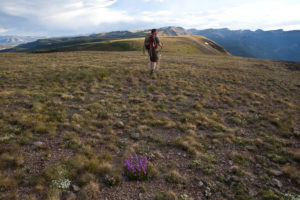 I spent a lot of time ruminating on what I could have done differently. Why didn’t I call to check on this individual before the appointment? Why didn’t I notice the blood pressure sooner or get an attending faster? What if the resident who signed out to me finds out their former patient ended up in the ICU after one visit with me? Thankfully, that patient ended up being okay, but it was the first of many experiences that would leave a lasting impact.
I spent a lot of time ruminating on what I could have done differently. Why didn’t I call to check on this individual before the appointment? Why didn’t I notice the blood pressure sooner or get an attending faster? What if the resident who signed out to me finds out their former patient ended up in the ICU after one visit with me? Thankfully, that patient ended up being okay, but it was the first of many experiences that would leave a lasting impact.
Residency is an interesting phenomenon. It’s like an invisible threshold, where on one side of July 1 you are light and buoyant. On the other, you are weighed down with the responsibility of people’s lives ostensibly placed on your shoulders. Few professions can match the physical and emotional peaks and valleys that define medical training. Friends and family that aren’t in medicine can find it hard to relate the day-to-day life of a resident. Many times, I would come home to random questions about dramatic traumas or steamy call-room encounters (thanks, Grey’s Anatomy!). Therefore, many times, I would have to explain the role of an internist — that most nights, I’d be lucky just to see the inside of a call room. If I did lay down, it was at the risk of being jolted awake for anything from a cardiac arrest to an FYI page about rabbit allergies.
Currently around the country, thousands of newly matched interns are eagerly crossing that proverbial threshold. On the other side, there awaits experiences that will test the boundaries of their comfort zones and leave them equal parts exhausted and fulfilled. They join other new doctors from various walks of life and form the unyielding bonds of friendship fortified by the shared experience of residency. To borrow the famed quote from Charles Dickens, it is the best of times and the worst of times; and those of us who have already crossed the boundary must continually weigh the virtues of rigorous medical training against the long-lasting impact on physician well-being.
As for myself, I have now started my first “real” job since 2011. It’s been an exciting process, but one in which I’ve also had to grapple with my own post-residency syndrome. I look forward to taking some time off to spend with loved ones and reclaim some parts of myself that didn’t quite make the full journey across the threshold 4 years ago.


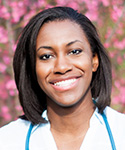
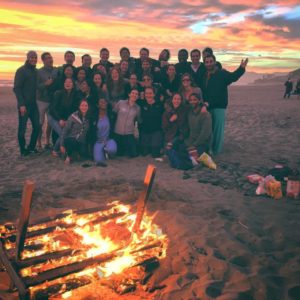
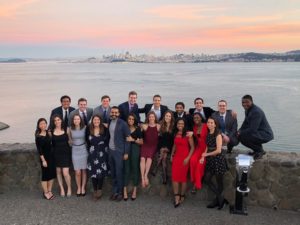

At least you had an attending. At Bellevue hospital many years ago they were absent across the river in Teaneck New Jersey.
I ‘lol’ed at the page about rabbit allergies.
Thanks for the post! It is exciting to look forward to (I am a R3 currently), and I am thankful for your comment about reclaiming parts of your self that didn’t make it across the threshold. Residency is a part of life, and continual rediscovery is part of life! Residency just pushes medicine to the forefront for a bit of time.
Thanks again!
Deo Volente,
CSR